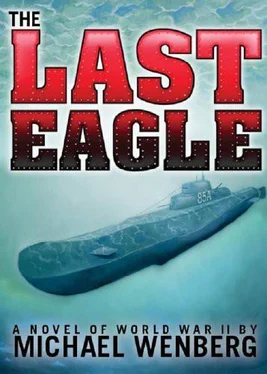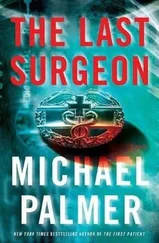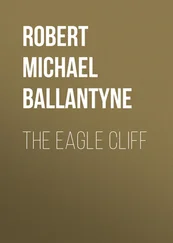The captain looked up from the message. “West of Bornholm. Looks like you were right.” He sounded disappointed. “She was heading this way. We got her.”
Ritter glanced at the chart, tracing along with his index finger until he found the position on the map. He noted the sea depth in the area and frowned. More than enough room for the Eagle to dive and hide. “Is there a minefield anywhere near here?”
“Yes. Since last year. According to this message, it appears that the Polish submarine was caught by it. Somehow those lucky bastards were able to make it through. When our ships were spotted, she dove. She won’t get away.”
Ritter rubbed at the scab on his check. Itching already. That was a good sign. He restrained an impulse to pick at it.
“Shall we join them?” The captain glanced up at the helm, ready to issue the order.
Ritter stared out the bridge window at the gunmetal-gray sea glinting dully in the midday light and the dark band of Danish coastline beyond. They had been prowling the narrow stretch of the Sund, between the Danish port of Helsingør, and the Swedish counterpart across the channel, Helsingborg, back and forth like a relentless sentry, for the past two days. He was restless to move on, too. Do something. But it would be wrong. His father had always complained that he was too impatient. But no longer.
Ritter sucked air in through his teeth. “We stay here,” he decided. “This is where they will come. They will have no choice.” He snagged his copy of Hamlet from the edge of the chart table as he strode across the room, turned slightly in the direction of the captain and touched his forehead in a salute, and then disappeared through the doorway.
“As you wish,” the captain said tightly. This Ritter had better be right, he thought to himself, or Grossadmiral Raeder himself would hear of it.
Stefan hooked his arms over the periscope, slowly walked it around, and then he stopped. “Malmö,” he croaked at the sight of the lights glowing softly like a warm fire against the night sky to the east. He noticed the beam from the lighthouse just south of the city begin another sweep, probing almost all the way out to the Eagle , though she must be at least eight kilometers from the shoreline. The location of lighthouse confirmed it. There was no doubt. It was Malmö. And the Eagle had finally made the approaches to the passage at The Øresund.
Stefan pulled away from the periscope and found Eryk. Of course, he deserved all the credit. It had been his makeshift charts that had lead them safely west from Bornholm. If anyone was a hero, it was Eryk. But Stefan was too exhausted to offer him anything more than a wink and a nod of appreciation. Eryk seemed beyond any response, panting open-mouthed like everyone else because of the high levels of carbon dioxide, sprawled over his charts, trying to ignore the headache that threatened to split his skull in two parts. But he caught Stefan’s faint motion and, after a moment, smiled as best he could, and nodded back at his friend. If truth be told, Stefan’s recognition was more valuable to him than any medal he could ever receive. Of course, he could never say that to him. It wasn’t their way. And so a mutual exchange of nods would have to suffice.
Stefan glanced around the Control room. In the one faint red light that remained unbroken, it was a garish mess of shattered glass, cracked dials, insulation dangling from the bulkheads and ceiling like flesh from a partially skinned cadaver, a thin layer of fetid, blood-colored water gently washed back and forth across the deck as the Eagle swayed to the ever-present pulse of the sea. The air was thick enough to chew, and almost unbreathable, oxygen levels dangerously low and carbon dioxide levels too high. The men were all in various states of exhaustion, or worse. One of the helmsmen—Stefan couldn’t remember his name—had finally broke. He was curled up in the corner, moaning softly to himself. They had just left him alone.
And yet, remarkably, despite their current state, they had suffered no serious damage. They had been depth-charged almost nonstop for 22 hours, the destroyers taking turns flinging cans into the water until their supplies were exhausted, and then hurrying away only to be replaced by another ship.
Instead of running after escaping from the minefield, Stefan kept the Eagle resting on sediment at the bottom of the Baltic for most of the day. He suspected they were save by their proximity to the minefield. As the destroyers made their initial depth charge runs, they shied just far enough away from the field to keep the Eagle whole. Though not in any serious danger of being destroyed, she was trapped.
During one lull in the action, when the destroyer pack had moved off, their screws silent, Stefan decided it was time to make a run for it. But even after they partially blew the ballast tanks, suction kept Eagle glued to the bottom. Stefan tongue-lashed the weary crew to their feet, and then lead the exhausted, and near-dead stumbling and staggering fore and aft until their shifting weight finally broke the Eagle free. By that time, the men, many weeping and moaning, simply dropped in place.
They had headed southwest, through another night and another day, hugging the bottom, pausing at the sound of approaching ships, driven along at a dogtrot by their electric motors, the pounding of depth charges in the distance, and high-speed screws from destroyers and torpedo boats ebbing and flowing, but never disappearing entirely long enough so that they could sneak to the surface to recharge their batteries and air supply.
Until finally they had reached Malmö.
Stefan did another circuit with the periscope. Distant lights moved like fireflies, but nothing close.
“Take us up, all the way,” Stefan ordered, and then leaning into the speaker tube, said: “Rig for surface. Cooky to the control room.”
“Yes, sir?” Cooky said, poking his head through the hatchway a moment later.
“You know those bottles I had you hold under lock and key?”
“Yes, sir,” Cooky replied, puzzled.
“Break them out,” Stefan said slowly. “I want everyone on board to get a swig. Tell them it is courtesy of the great people of Poland.”
Cooky’s features disappeared into a grin. “Aye, aye, sir,” he said, saluting. And then he was off.
As was his habit, Stefan was first up the ladder, cracking the hatch, and then scrambling slowly out onto the bridge as the diesels rumbled awake.
He was hatless, wearing a pea coat thrust into his hands at he last moment by someone in the Control room. He raised his nose into the night air and breathed like a man starved. He couldn’t imagine anything so smelling so wonderful.
A chill breeze tousled his hair. Some part of him noted that there was a hint of rain in the air and realized like someone in a dream that that would be a good thing for them all this night. And fog, too, if there was a God in heaven watching over them. The fragment of a poem came unannounced to his mind. Something from Westling’s collection no doubt: The fog comes on little cat feet … He hoped it was true, the fog already silently padding across the channel ahead of them.
Stefan ordered half speed, set the new course, almost due north now. He felt the Eagle surge forward as if even the submarine had grown tired of creeping along underwater and was as anxious as the rest of them to get this finally over with. He glanced at his watch, the dial glowing faintly in the dark. Twenty-two hundred. The tide was rushing out of the Baltic right at the moment, carrying them along at another three or four knots. Instead of charging through the passage at flank speed, he planned to idle along, zigzagging back and forth across the channel to avoid any ships, keeping the diesels as quiet as possible. And if they were very lucky, they would be into the broad, deeper waters of the Kattegat by morning. Another day of hiding, and then time to contact the British Fleet, slip around The Skaw and out into the North Sea, hoping they didn’t run into a British minefield or get mistaken for a German U-boat by British aircraft before they had a chance to rendezvous with friends. He could see the ending in his mind, shimmering like a distant mirage. So close and yet, still, so many opportunities for failure in between.
Читать дальше












